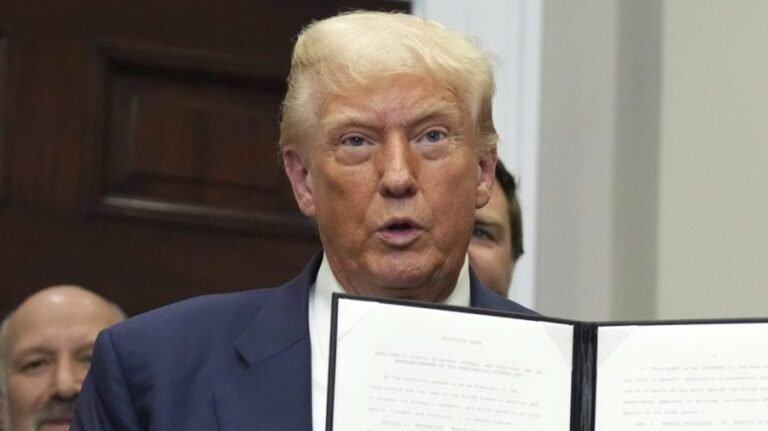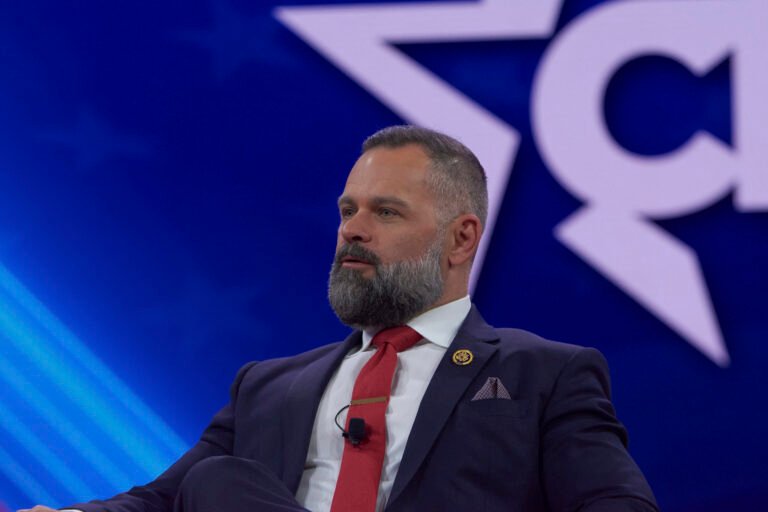
Franklin Delano Roosevelt — the architect of modern labor law and workers’ rights — wrote in 1937 that collective bargaining does not belong in the public sector.
President Trump’s executive order ending collective bargaining across national security agencies represents a return to Roosevelt’s sensible approach. The order leverages authority granted by Congress through the Civil Service Reform Act of 1978 to ensure critical government functions aren’t hamstrung by union obstruction.
The urgency of this action becomes clear when examining recent history. According to the White House, since January, the Department of Veterans Affairs alone has faced 70 national and local grievances from unions, more than one per day. What’s more, when the Veterans Administration attempted to implement congressionally mandated accountability reforms, unions tried to force the reinstatement of 4,000 employees, many of whom were removed for poor performance or misconduct.
In what alternate universe can private organizations invalidate legislation passed by elected representatives?
Similar stories play out across the federal landscape. According to the Federal Labor Relations Authority, Immigration and Customs Enforcement officials cannot modify cybersecurity policies without first completing time-consuming midterm bargaining with unions.
When vital agencies can’t adapt to emerging threats without union permission, national security is at risk.
Critics will argue the executive order’s definition of national security is too expansive. Unfortunately, modern threats don’t fit neatly into Cold War categories.
Energy security, cybersecurity, pandemic preparedness and economic defense all represent critical vulnerabilities adversaries can exploit. The integrated nature of these threats requires a holistic understanding of national security extending well beyond traditional military concerns.
To be sure, union supporters raise legitimate concerns that deserve serious consideration. Federal workers deserve protection from partisan purges, workplace discrimination and retaliation for whistleblowing. They’re also entitled to reasonable compensation and safe working conditions.
These are values most Americans share, regardless of political affiliation.
But collective bargaining isn’t necessary to secure these protections. Civil service safeguards predate unionization and will remain intact under Trump’s order. Merit principles, anti-discrimination laws and whistleblower statutes continue to shield workers from abuse.
All that changes is the union’s power to dictate operational decisions that elected leadership should control.
America needs a new framework that protects workers without undermining accountability. Some state reforms offer promising models, requiring annual recertification elections for unions, ensuring they maintain worker support. Other states have ended automatic dues deduction while strengthening civil service protections, effectively uncoupling worker rights from union power.
In the months before President Joe Biden left office, his administration renegotiated the collective bargaining agreements of federal agencies such as the Environmental Protection Agency. This move highlights the core problem: When unelected organizations can systematically obstruct policies established by elected leadership, the government becomes less responsive to voters’ needs.
Trump’s executive order, even with its limitations, addresses a longstanding problem in federal governance. The question isn’t whether you support unions or management, but whether you believe the government should prioritize serving citizens over protecting entrenched union interests, regardless of which party controls the White House.
Our government’s effectiveness depends on resolving this tension. We need a federal workforce that combines strong protections for individual employees with the flexibility agencies need to fulfill their missions.
Only then can we achieve what both parties claim to want — a government that works for all Americans.
Aaron Withe is CEO of the Freedom Foundation.


